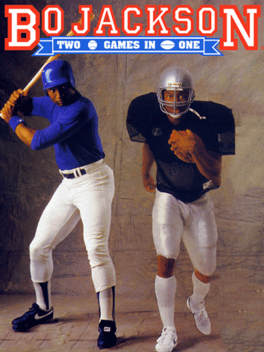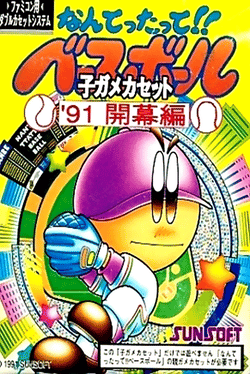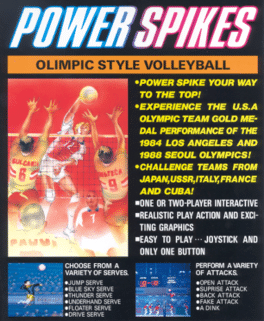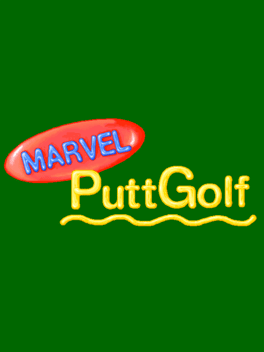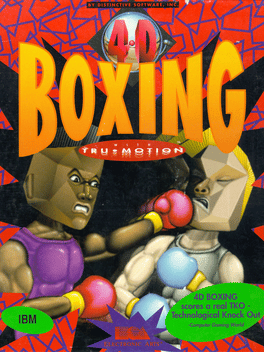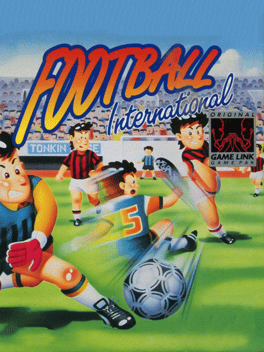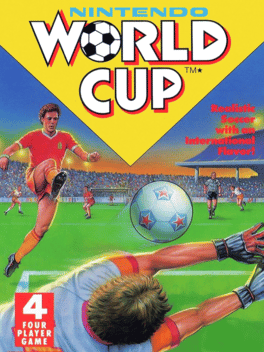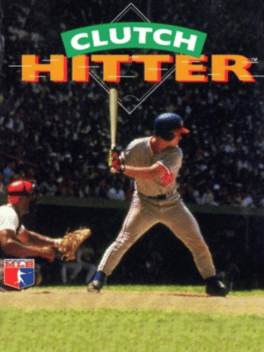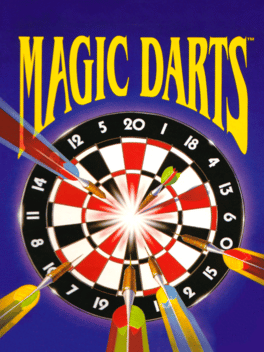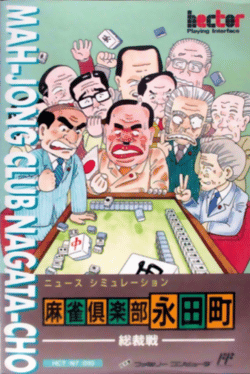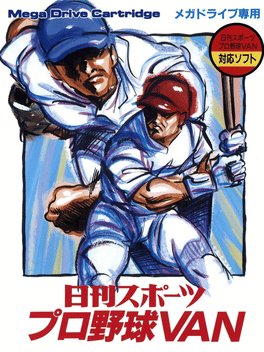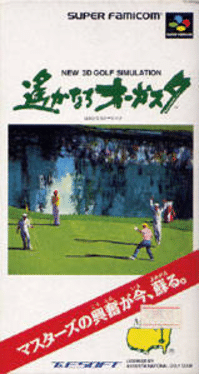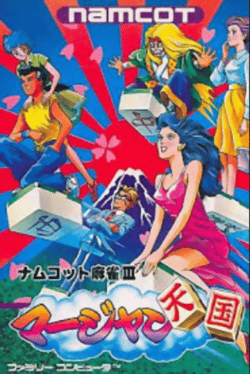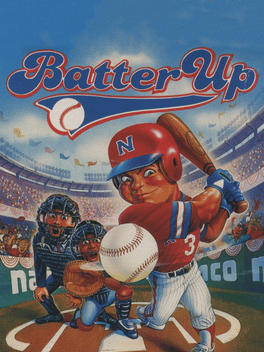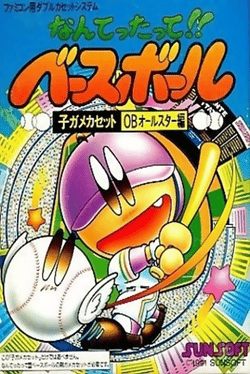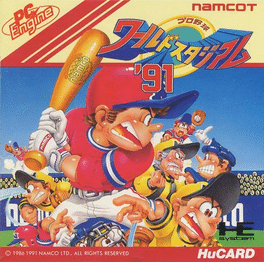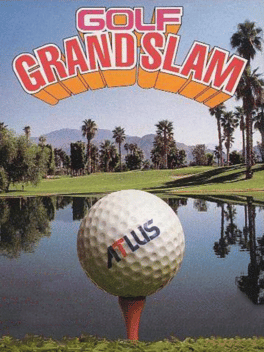New Sport Games - Page 213
-
Bo Jackson: Two Games in One
1991
star 5.7It's two games in one -- play either baseball or football in this game headlined by Bo Jackson. In baseball, you can participate in all the major parts of the ballgame, such as pitching, hitting, and fielding. The field is displayed in 3D using an engine called "3-D Sensation." In football, the field is displayed as an overhead view in 2D with tiny players running around -- a sharp contrast to the graphic style of the baseball portion of the game. The football game allows you to design your own plays and watch them with instant replay. -
Nantettatte!! Baseball '91 Kaimaku-hen
1991
Nantettatte!! Baseball '91 Kaimaku Hen is a Sports game, developed and published by SunSoft, which was released in Japan in 1991. -
Power Spikes
1991
-
Marvel Putt Golf
1991
Marvel Putt Golf
1991
A simple putt-putt golf game, where you can play a variety of courses with several players taking turns. -
4-D Boxing
1991
4-D Boxing
1991
star 8.34-D Boxing leaves behind any pretences of being a pure arcade game based on boxing, and aims to recreate the sport in full detail. The graphics engine allows for multiple camera angles and viewpoints, and considerably detailed visuals. These required more advanced hardware than was common at the time, but a stick-figure mode was included as a compromise. The moves on offer include all the uppercuts and hooks of a real fight, and the players are designed to move realistically to implement them. You progress through the game by taking on a succession of increasingly difficult fighters, and get to train your boxer in between. Advanced action replays are included as well, so you can review all that happened. -
Football International
1991
star 3.3Football International is a top-down soccer game with eight national teams to choose from. The player can either participate in an exhibition match or in a knockout championship. Other options which can be set is the time a half-time lasts and if the own team uses a more defensive or offensive lineup. The game itself consists of the usual dribbling, passing and shooting. Normally the camera closely follows the ball carrier, but when a wide shot is performed it zooms out and shows the whole playfield. -
Nintendo World Cup
1991
Nintendo World Cup
1991
Nintendo World Cup is the Western localization of Nekketsu Koukou Soccer Bu: World Cup Hen. -
Rim Rockin' Basketball
1991
This four-player game approaches basketball with a more serious attitude than some of the more well-known modern basketball games. Control one of five players on your team: Dribble, pass, shoot into the basket for score! Now repeat. -
Dynamic Country Club
1991
Dynamic Country Club
1991
A golf simulator game that used polygons for the terrain and had other details such as wind conditions. -
Clutch Hitter
1991
Clutch Hitter
1991
A baseball game featuring the 1991 rosters of Major League Baseball, including the All-Star teams. -
Magic Darts
1991
Magic Darts
1991
Darts is one of the most popular leisure games of all time. MAGIC DARTS has tournament style action which brings the excitement of real competition into your home. Up to four players can compete using standard NES controllers. Get yourself on target and play MAGIC DARTS. -
Mah-Jong Club Nagata-cho: Sousaisen
1991
Mah-Jong Club Nagata-cho: Sousaisen is a Miscellaneous game, published by Hect, which was released in Japan in 1991. -
Nikkan Sports Pro Yakyuu VAN
1991
Nikkan Sports Pro Yakyuu VAN is a Sega Mega Drive cartridge developed and released by Sega exclusively in Japan. It uses the Sega Mega Modem and a subscription VAN service to display game action in real time, and to save games for later viewing. As such, it cannot be properly emulated yet. Nikkan Sports provided the service under the VAN name. -
Harukanaru Augusta
1991
Harukanaru Augusta
1991
Harukanaru Augusta is a Sports game, developed and published by T&E Soft, which was released in Japan in 1991. -
Nekketsu Koukou Soccer-bu: World Cup-hen
1991
Nekketsu Koukou Soccer-bu: World Cup-hen is a Game Boy version of Soccer Story, based on the international version of the game (Nintendo World Cup). -
Namcot Mahjong III: Mahjong Tengoku
1991
Namcot Mahjong III: Mahjong Tengoku is a Miscellaneous game, developed and published by Namco, which was released in Japan in 1991. -
Batter Up
1991
Batter Up
1991
Batter Up is a baseball game for one or two players. It features a fictional "Namco League" consisting of 14 teams, each with their own player roster, with different players having their own strengths and weaknesses. -
Nantettatte!! Baseball OB All Star-hen
1991
Nantettatte!! Baseball OB All Star-hen is a Sports game, developed and published by SunSoft, which was released in Japan in 1991. -
Pro Yakyuu World Stadium '91
1991
AKA: プロ野球 ワールドスタジアム'91. The Namco version of baseball game with fake roster of Japan Professional Baseball. -
Golf Grand Slam
1991
Golf Grand Slam
1991
Now, in Golf Grand Slam, you'll face all the conditions you would on a real golf course! Learn more about using each of the 14 golf clubs, how to choose a strike point on the ball, and setting up putts - all while you're contending with wind resistance, sloping greens, complex faiways and more. Two training modes have been specifically designed to help you sharpen your golf techniques. Then, after you've mastered those, you can take on the Golf Grand Slam Top 30 Pros in a tournament that will push you to the limit! So if you're ready to enjoy golf and improve your game without leaving home, let's go!
